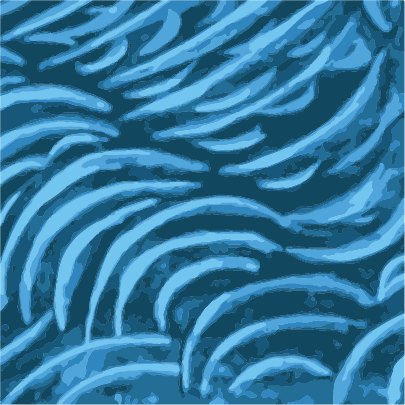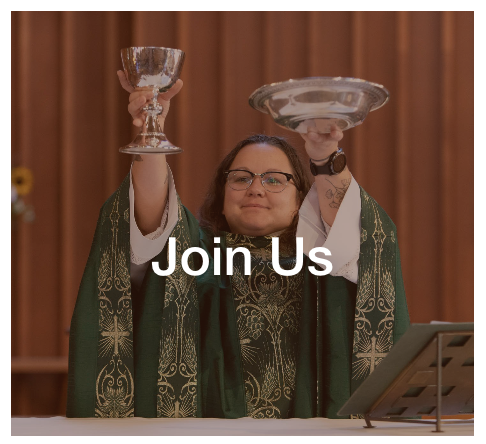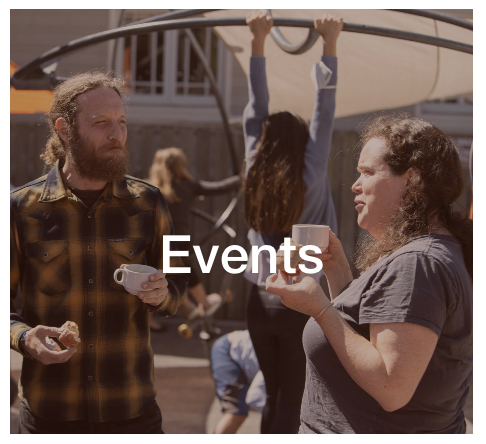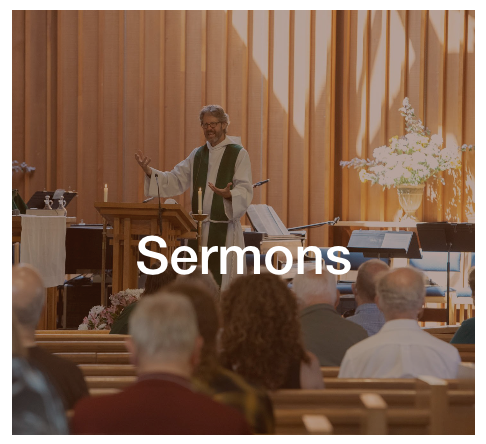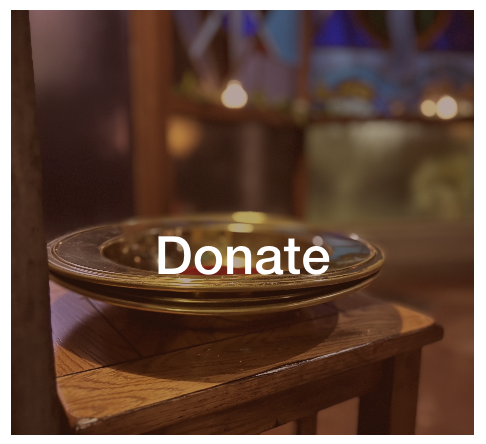The Pathfinder: July 18th, 2024
What Can We Hope For?
Dear All Souls Community,
All week, I’ve wondered what I’d say in this Pathfinder reflection. I won’t repeat all of the headlines we’ve seen recently—all of the reminders that conflict, fear, hatred, extremism, and injustice seem to be winning in our country and our world. I feel a strong need to find something—anything—hopeful to say. I feel compelled to suggest what we, as a Christian community, might be called to do in this frightening time.
And that feels like a really tall order.
As I thought about this task, I didn’t turn to my usual sources of hope and direction: prayer or poetry or Scripture. Instead, my mind kept returning to a source I first encountered in seminary: Paul Tillich’s Against the Third Reich: Wartime Addresses to Nazi Germany.
Between March 1942 and May 1944, Tillich—a German philosopher and theologian—wrote over a hundred short radio addresses. The addresses were broadcast from the United States, where Tillich had been forced into exile in 1933. But he spoke in his native German language, addressing the occupied people and nation he’d left behind.
I want to be very clear. I don’t mean to draw a direct comparison between our current political and social climate in the United States, and that of Nazi Germany. I don’t want to suggest that one present-day candidate or party is like a historical one.
But I do think that Tillich’s Wartime Addresses can speak powerfully to our present moment. He wrestles with questions that feel eerily familiar and timely:
What values are worth defending?
What is our responsibility as individuals in relation to systems of oppression and power?
What can we hope for, personally and collectively?
Are we passive observers in the movement of history? Or, can we play an active role to shape and change the course of a nation?
Tillich asks these questions from the position of a Christian theologian. He uses the symbols and concepts of religion to try to make sense of his historical situation. And he examines—honestly, realistically, humbly—whether Christian theology has anything useful to say to his war-torn world. Can words like sin, guilt, grace, or redemption speak to the experience of suffering? Can they help us see a way forward, a way of hope and life?
This week, I dove into Tillich’s Wartime Addresses. (You can find many used copies online if you want to explore on your own!). I read through dozens of them, searching for something to say to you about “hope.”
Many phrases jumped out that feel relevant to our situation. For example: “Freedom is the right, in the name of God, to protest against ungodly authorities” (p. 21).
Or this, speaking of war crimes from all sides: “We had all believed that what is inhuman in people could still appear only in rare exceptions. We didn't anticipate that it could become present in millions of people” (p. 102).
And this one: “Fear makes people incapable of judgment. A deeply frightened nation can no longer see what is being done with it. Against its will, it surrenders to those who want to exploit its fear” (p. 257)
The more I read, the more I realized: the content of Tillich’s writing isn’t obviously hope-ful. The broadcasts have stark titles: “The Death and Resurrection of Nations,” “Who Is Guilty?”, “The Tragic in the Evolution of History.” Tillich is unflinchingly honest, quick to call out those who abuse power and those who are complicit.
And yet, while reading his words, I felt hopeful. Many times, I went from reading our own news to reading Tillich’s radio broadcasts, and that brought me comfort. I felt calmer, more grounded, more able and willing to look ahead with something other than despair.
Why?
I think the hope I find in reading these Wartime Addresses comes from at least two sources.
First— it’s hope-ful to hear someone simply naming what is, unflinchingly and honestly, without pushing too quickly for optimism or resolution. Tillich writes from within a horrendous global struggle, not from the other side of it. He doesn’t know when the war will end and how—or if—peace and reconciliation will ever come. The most he can do is to observe what’s around him, illuminating the patterns of human nature—both destructive and constructive—that he sees at play. He can help us position ourselves within a decisive historical moment, revealing what’s happening and what’s at stake. In the absence of a clear way forward, “hope” looks like courageous truth-telling about the place where we are.
Second— Tillich’s writing helps me remember the paradoxical nature of hope as we understand it in the Christian tradition. The hope at the heart of our faith is always hope in-spite-of, hope that’s powerful precisely because we’ve faced the reality of death, darkness, and despair.
Tillich gave a particularly poignant address on New Year’s Eve, the cusp between 1942 and ‘43. Looking ahead, he writes: “One thing is certain: it will be a dark, infinitely hard year. The new year will bring you the assurance that the war is hope-less and that all sacrifices you bore for the sake of victory were fruitless” (100).
And yet a few lines later, he writes, “I believe this war, like every great turning point of time, has not only the pain but also the bliss of birth within it! Something new will come to be in many nations, not only a new year but a new period of history.”
Tillich is willing to name the truth of what is because he knows that what is isn’t the end of the story. He speaks from within a tradition that proclaims the promise of resurrection, the promise that nothing is too far gone to be transformed. There’s a lot that Christianity gets wrong when it comes to politics and power. But I think that our insistence on hoping in-spite-of is a powerful, crucial tool that Christians can model and hold tight to in this time of need.
What do you fear in the year that’s coming?
If you let your deepest distrust and anxiety speak right now, what would it say?
Perhaps hope, right now, doesn’t mean looking past the unrest and fear and despair that you feel at this moment. Perhaps hope begins here, now, together, as we name what is and draw from the courage of people throughout history who’ve done the same.
–Emily+
Upcoming Book Group:
We Survived the End of the World: Lessons from Native America on Apocalypse and Hope, by Steven Charleston.
You are cordially invited to this summer’s final book study: We Survived the End of the World: Lessons from Native America on Apocalypse and Hope by Steven Charleston (Broadleaf Books, 2021). Text is available both in hard copy and Kindle.
If, like me, you are feeling overwhelmed by the political, social and climatic changes around us, come spend time learning from Bishop Steven Charleston about different ways in which leaders of four First Nations helped their communities to face and survive the devastation of settler invasions which remade their worlds. Drawing from the histories of individual prophets from the Seneca, Shawnee, Wanapams and Paiute nations, and the world view of the Hopi, Charleston points to our call to be prophets in our own communities - to love the earth and speak truth and compassion in the midst of the political, cultural and climatic tides which frighten us.
July 28, Chapters 1-3 (82 pages)
Aug. 4, Chapters 4-5 (55 pages)
Aug. 11, Chapters 6 through Epilogue (62 pages)
Join us on Sundays at 9:15 in the Jordan Court Community Room. (July 28, August 4, August 11)
–Marguerite Judson+
Meet the Acolytes!
Our acolyte program is back in full swing! You’ve likely noticed many of our youth serving as crucifers and torchbearers.
Acolytes play an indispensable role in our worship life, providing assistance to the altar party and participating in all parts of the service.
This summer, we are running profiles of our current acolyte team so you can get to know them.
If you'd like to join us and be trained as an acolyte, please reach out to me, Emily B!
Acolyte Profile: Penelope Armstrong (they/them)
“My name is Penelope A. Armstrong and my pronouns are they/them. I am going into 9th grade at Berkeley High School.
Outside of being an acolyte I am an English horseback rider and enjoy reading and writing. I’m a musician and I play the violin and sing. I am hoping to get onto the BHS volleyball team this year.
My favorite part of being an acolyte is having an opportunity to get to know Reverend Emily and Reverend Phil.”
–Emily+
Living Waters
Almost there!
The City has not issued our building permit. Yet. However, WCI, our contractor, and HY, our architect, expect the permit to be released within the next week.
They are so confident about the permit that they have decided to hold the first official construction OAC (Owner-Architect-Contractor) meeting this week! WCI plans to mobilize on site next week.
It’s go time!
–Patrick Tahara and the Property Committee
Announcements & Events
Happening This Week
Parish Camping Trip, Big Sur, July 19-21
This weekend, many members of our congregation will travel down the coast for our annual Parish Camping Trip. Please pray for a safe, fulfilling, community-building experience! Sunday services will be held as usual at All Souls for those who are in town.
Worship This Sunday
8:00am, Holy Eucharist in Chapel
10:30am, sung Eucharist (click here to access the live stream)
Wednesday 9am Eucharist Service. Join us by Zoom at this link.
Reading Between the Lines Bible Study, Sunday @ 7:00a. Click here to join by Zoom, or join them in-person in the Jordan Court Conference Room.
Adult Formation
Current Book Group: Supercommunicators: How to Unlock the Secret Language of Connection, by Charles Duhigg. Led by Raymond Yee.
Have you ever wondered what makes some people "supercommunicators"? Who among your friends and family are the people you turn to when you need to be understood, to be heard? This month, we’ll embark on a journey to become better communicators ourselves and deepen our connections with each other.
Join us on Sunday at 9:15 in the Jordan Court Community Room on July 21st for our last meeting in this three-part series.
Upcoming Book Group: We Survived the End of the World: Lessons from Native America on Apocalypse and Hope, by Steven Charleston. Led by the Reverend Marguerite Judson. See the detailed description above. (July 28, August 4, August 11)
Children & Family
Children’s Book Group While Sunday School is on a break for the summer, we are excited to offer a new form of fellowship for kids: children’s book groups! Fourth to sixth graders will read The Eyes and the Impossible by Dave Eggers. First to third graders will read The Secret of the Hidden Scrolls by M.J. Thomas. If you are interested in participating, please email Molly Nicol (molly.joan.nicol@gmail.com).
Youth Program is on hiatus for the summer. We’ll return in the fall.
Justice & Peace
Boost the Vote! “…it is the church’s responsibility to help get souls to the polls.” - Presiding Bishop Michael Curry
This important effort is still ongoing! Please consider taking part:
The All Souls Justice and Peace team invites you to help increase voter turnout by writing letters, following these easy steps:
Pick up from church 20 individual names, addresses, paper, & envelopes
(The names come from Vote Forward’s analysis, identifying citizens in low voter turnout areas)
Write non-partisan notes to encourage voting
Add postage
Return to Janet or a church basket to be mailed on Vote Forwards’s assigned dates
Ask for 20 more…?
Contact Janet Chisholm, jgchisholm@aol.com to request materials or to ask questions.
Undergraduate Street Medicine Outreach Undergraduate Street Medicine Outreach (USMO) is a Cal student group that organizes outreach events every Saturday to bring food and resources to homeless encampments in Berkeley. Because these encampments are in resource deserts, they often lack access to quality food, medical services, and other resources which we try to facilitate through our many partnerships. All Souls has been supporting this effort through donation of menstrual hygiene products.
Now, USMO has invited us to take part in more direct outreach efforts, especially as USMO student volunteers are away for the summer. The USMO group meets on Saturdays at 12:10 pm at the West Circle on UC Berkeley's campus (location linked here). From there, they organize pick-up and delivery of food and supplies. If you would like to join in this effort, please contact Beth Christensen for details (beth.christensen@gmail.com). She will connect you to the USMO leadership team.
Finally, while menstrual hygiene products continue to be welcome, there is additional need for the following items:
Power banks
Phone chargers
Batteries
General hygiene and first aid products
Size 8 women’s shoes
You can drop off these items in the red donation bin in the narthex. Thank you!
Volunteer Opportunity: WriterCoach Connection
All Souls community members have been invited by a local organization, WriterCoach Connection, to volunteer:
“We are a local nonprofit which brings volunteers into local middle schools and high schools to help students with their writing and critical thinking skills. Our volunteers provide much needed one on one support which helps students become confident thinkers and writers. Contact Noah Curtis-Goldstein (noah@writercoachconnection.org) if you are interested.”
Needs of the Community
Stephen Ministry When you experience unusual stress or navigate a major life transition, the support of a Stephen Minister could be helpful. To explore this possibility, contact Madeline Feeley, a Stephen Leader, at 510-495-4512 or madelinefeeley@gmail.com.
Meal Train If you are in need of meals, or if you’d like to join this network to deliver food to others, please email Sarah Oneto at sarahoneto@gmail.com.
Community member request: Teresa Vosper is looking for a twin or XL twin mattress. If anyone has one to spare, please reach out to either Teresa or Emily Hansen Curran.
Everything Else
Dent’s Farewell Reception and Gift Next Sunday, July 28th is our last day with Dent Davidson before his retirement! Join us after the 10:30 service for a reception in the courtyard. We are putting together a gift for Dent and his family and we would welcome your contribution. If you would like to contribute, you can do so by either putting a check in the offering plate designated “Dent’s gift” or by clicking on this link. Thank you!
Additionally: Please help us sign a farewell card for Dent! There is a physical card — quite large!— on the counter in the narthex, closest to the courtyard. Add a blessing, thank-you, or signature.
Big Sur Camping Trip Any and all are invited to the annual church camping trip at the Santa Lucia Campground in Big Sur. The dates this year are July 19-21st and the cost is $45 per person (kids under 5 are free) and there is a $180 max for families. If cost is prohibitive, please just let us know and we’ll have you covered. Sign-up here!
Homecoming Sunday: August 25th after the 10:30 service You are invited! Whether you’ve been coming for a while and are returning from summer, or you’ve been away for a very long time and hoping to reconnect, or if it’s your first time: welcome home. Come celebrate the start of the new year with us.
Save the Date: Parish Retreat Join us at Bishop’s Ranch for our annual Parish Retreat, September 13th-15th. More info and sign-ups to come!
Screening of The Philadelphia Eleven movie, Sunday July 21st, 5 p.m., Contra Costa Theater, Martinez
The Women’s Clericus of Contra Costa County invite you to a screening of The Philadelphia Eleven, a film about the first women to be ordained priests in the Episcopal Church. All are invited to the screening. RSVP here to reserve a space.
Flowers on Sundays at Church If you are interested in dedicating the flowers in the Church on Sunday mornings to a loved one or a particular remembrance, please fill out this form and indicate which day you would like to contribute the flowers and what you would like the dedication to say. The dedication will appear in our printed materials on the Sunday you have selected. The suggested contribution for flowers is $75, which can be paid to All Souls either electronically or by check (see the giving page on our website for more information there), and be sure to write in "flowers" in the memo line.
Please contact Maggie Cooke for any questions, giving@allsoulsparish.org




